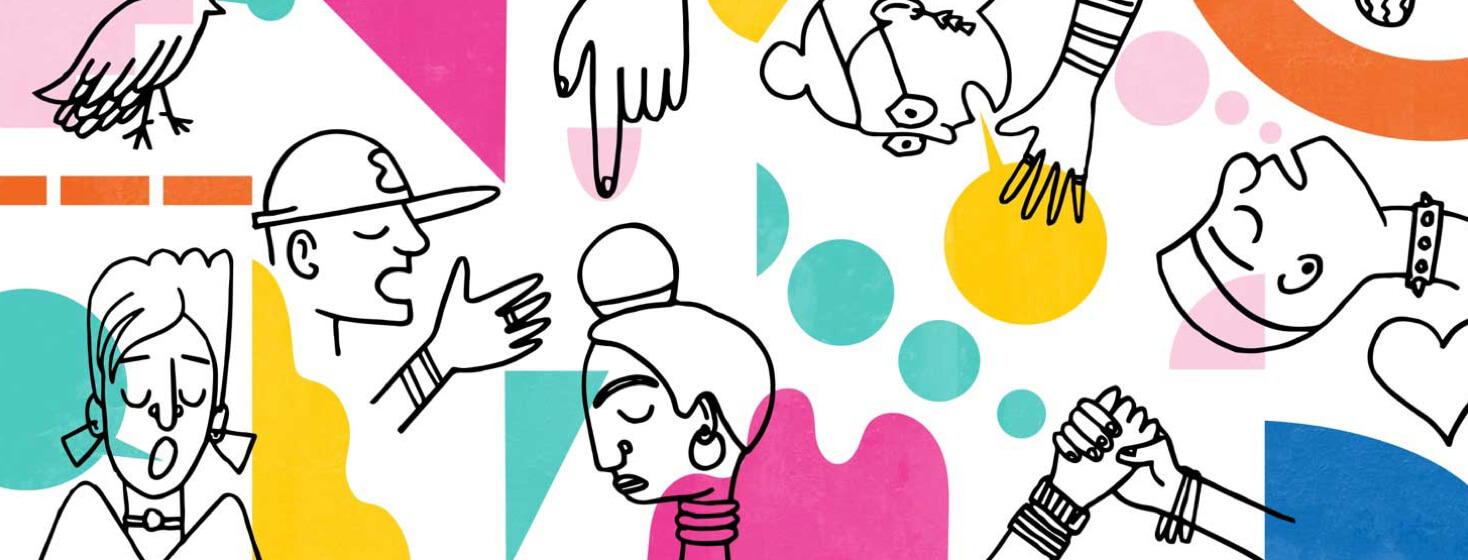Community Views: The Impact of Narcolepsy Symptoms
Narcolepsy has deep and lasting consequences for daily living. Many situations, whether at work, home, or school, are made more challenging by narcolepsy symptoms.
To better understand the impact of this condition, we turned to community members. We asked followers of our Facebook page to tell us, “If you could get rid of one symptom of narcolepsy, what would it be and why?”
Symptoms with the biggest impact
While finding it hard to choose, several symptoms consistently emerged through your responses. A number of you mentioned that these symptoms most frequently have a negative impact on your life:1
- Excessive daytime sleepiness (EDS) – This is the most common symptom of narcolepsy. Even when sleeping through the night, extreme sleepiness leads to “sleep attacks,” where the person with narcolepsy drops off to sleep without warning.
- Cataplexy – The sudden loss of muscle tone or control when experiencing a strong emotion, like laughter or stress.
- Sleep paralysis – The temporary inability to move or speak when waking or falling asleep. It can last from a few seconds to several minutes.
- Hallucinations/vivid dreaming – Intense, often frightening images that can happen alongside sleep paralysis. Many of you also shared vivid dreaming as separate from sleep paralysis and part of the REM sleep cycle.
Symptoms that impact daily activities
Many comments reflect how narcolepsy symptoms interfere with your daily life. EDS makes completing certain activities difficult. The need to manage cataplexy takes away parts of your personality. Eliminating these symptoms would make life more enjoyable.
“Cataplexy, because it keeps me from driving, and I have to live in a Zen state to keep from triggering them.”
“Cataplexy. I used to be a pretty funny person. Now, I can’t tell the punchline of a joke.”
“Daytime sleepiness. I think it would help with the brain fog and lack of motivation.”
“Falling asleep while driving, watching movies, or any other activity that requires quiet sitting.”
Narcolepsy's effect on relationships
You also shared the heartbreaking reality of how narcolepsy changes your relationships. Cataplexy especially keeps you from engaging your whole self with friends and family.
“Not finishing jokes, starting to give up on telling stories, or saying snarky one-liners because I can feel the cataplexy creep in. I pass up on being my old silly self with my nephews because they’re both still too little, and I don’t want to scare them. It’s like knowing you are broken and then continuing to lose little pieces of yourself.”
“I could be living in the moment and enjoying myself, but instead, when cataplexy kicks in, I have to be cautious/concerned for my safety. I need to make sure anyone I’m with knows how they should react to best help me.”
“Not being able to talk or when out having a good time needing to sit down so that your legs don’t give out from laughing so hard. It’s embarrassing. Just the whole cataplexy itself when you’re at a family function."
Disruptions to nighttime sleep
Narcolepsy hampers nighttime sleep for many of you. Your responses highlight how narcolepsy disrupts sleep through hallucinations, sleep paralysis, and insomnia. Were you able to sleep better through the night, many of you feel that your other symptoms might be more manageable.
“Hypnagogic paralysis is terrifying. I fear one day I won’t be able to snap out of it/wake up.”
“100 percent the terrifying hypnagogic hallucinations. That is truly traumatizing.”
“Insomnia at night and never feeling awake during the day.”
“The constant vivid dreaming can be VERY exhausting.”
“I wish I could fall asleep and stay asleep all night instead of waking every 45 minutes. The vivid dreaming and sleep paralysis are so frustrating.”
We appreciate how openly you shared your experiences with narcolepsy symptoms. We hope the responses to this prompt help everyone feel less alone. Thank you all for being part of the community!
Want to see more articles like this? Browse our collection of Community Views articles and read more stories and advice from the narcolepsy community by clicking the button below!

Join the conversation